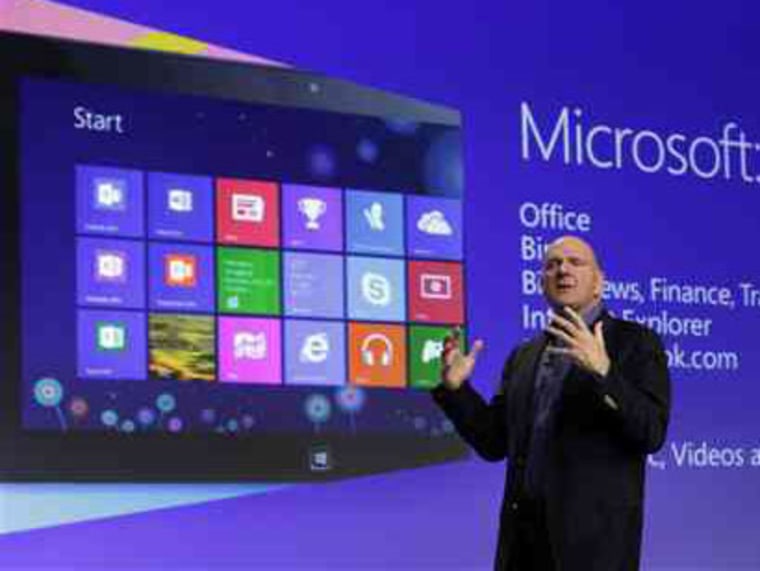With an upcoming fix for Windows 8, Microsoft finds itself in a strange position: It has to make the faithful happy by shaping the experience to be more like the respected Windows 7. Meanwhile, the company must continue to support the modern "Metro" interface and push the notion that the OS delivers a touch-tablet experience that surpasses iOS and Android.
The strategy is understandable — like most of Microsoft's moves up until now — but if you're out in the ocean, with each foot on a perfectly good log, wouldn't you want them lashed together, not drifting apart?
Mary Jo Foley of ZDNet has an unrivaled Microsoft tipster network. They're telling her that the fixes that comprise Windows "Blue" could include the return of the sorely missed Start button and an option to boot straight into the classic Windows Desktop environment, avoiding that colorful screen of live tiles that characterizes Windows 8. Additionally, Foley reports, there may be enhancements to the Metro interface to make it even more mouse-and-keyboard friendly. Foley admires the rumored fixes. If they make it into the final release, she says, "it's nothing but goodness."
She's right. Making Windows 8 more palatable to more people is good, not only for Microsoft's share of the PC business but for users in general. But how does playing up the classic experience not do something to erode the promise of a redesigned, tablet-friendly Windows? My biggest beefs with the new operating system have actually been the opposite of Foley's: I feel you're thrust into classic Windows all too often, especially when handling files, tweaking advanced control panel options and of course, running any kind of software that wasn't preconceived for Metro. If developers — including Microsoft's own Office team — have seen little reason to release a Metro version of their apps to date, a deemphasis of Metro by Microsoft would only confirm their prejudice.
With Windows 8, Microsoft faced its uncertain future by striking out in a bold new direction. Now that that has essentially failed, it feels like the company is putting a curb on the pioneering, and taking its wagons back east.
Beyond the OS
Windows itself is not what it was, when all software ran on it, and families and businesses both had to play it safe and steer clear of other operating systems, even that pop-culture darling, the Mac. In my immediate family, I can think of just a handful of Windows-dependent programs, niche business software and websites that are headed for retirement anyway.
As these crusty software systems evolve or disappear, Microsoft runs out of arguments for buying into its OS. Even though over a billion licenses have been served, it's not as if Microsoft can claim "security" and "ease of use" as competitive advantages. (NASA mentioned the other day that it was dropping Windows for Linux on the International Space Station's laptops, and that Linux is already the platform of choice at mission control and in its various robots and rovers.)
But neither Windows nor the Mac, which has seen a recent rise in popularity among consumers, won't be able to stand up against a tide that is drowning the PC business as a whole. Global PC shipments fell last year for the first time in a decade, and the blood is only just starting to flow.
I see a future where OSes suited to different purposes — mouse-and-keyboard, touch, voice and even gesture — will be treated like the workhorse platforms they are, increasingly invisible to us except in how well they handle the apps and services we choose to use them with.
As for the services, many can — and should — come from Microsoft. Just look at Outlook.com and SkyDrive and Skype, not to mention the sleeping giant that is Office 365, to see how Redmond could continue to be a player in the post-PC era.
Wilson Rothman is the Technology & Science editor at NBC News DigitalGroup. Catch up with him on Twitter at @wjrothman, and join our conversation on Facebook.
